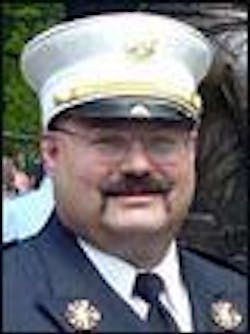Training & Tactics Talk: Live Fire Training Standard Updates
If you have been assigned to lead or participate in a live fire training exercise, you have a serious responsibility to the people you will train, lead, or supervise. These include a moral obligation and legislative responsibilities, including state laws, local codes, and even the possibility of criminal charges for acts that could be considered malicious or negligent.
Firefighters, both seasoned and rookies, have died or been severely injured during these live fire exercises. Unprepared firefighters are a threat to those they serve and serve with, especially when tasked with creating a drill and trying to make it as "real" as possible. They want to make it worth their time.
In this edition of Training & Tactics Talk, host Douglas Cline looks at NFPA 1403: Standard on Live Fire Training Evolutions. It's simple purpose it to mitigate the dangers and unnecessary risk. that crews can encounter under live fire scenarios. In this edition, Chief Cline and his guests illustrate NFPA 1403 and how to follow it's guidelines. Accompanying Cline are Deputy Chief David Casey of the Seminole Tribe, FL, Fire Department; retired Battalion Chief Mike Kemp, from Palm Beach County FL, Fire Department and Training Manager Susan Schell from the Florida State Bureau of Standards and Training.
